Training sessions

Training focused on practical outcomes
Citizen participation, multi-actors participation, collective intelligence… You are interested in these approaches that represent a different way of working together. However, you may need a better understanding of them to effectively implement them in your organization. Our training programs, combining theoretical insights, concrete examples, and practical application, can help you with this. To participate in our training, you have two options:
- Join one of our open training sessions, eligible for funding.
- Organize a custom training session within your organization.
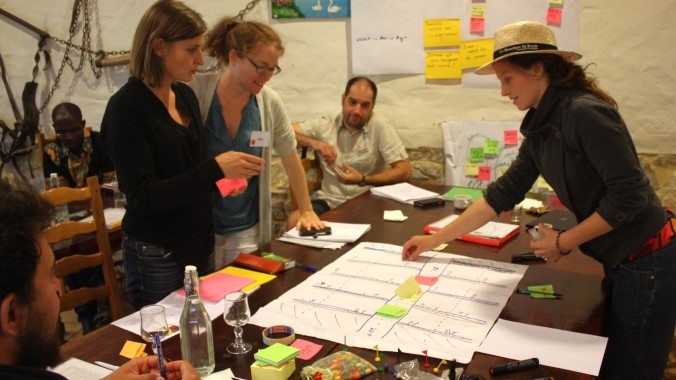
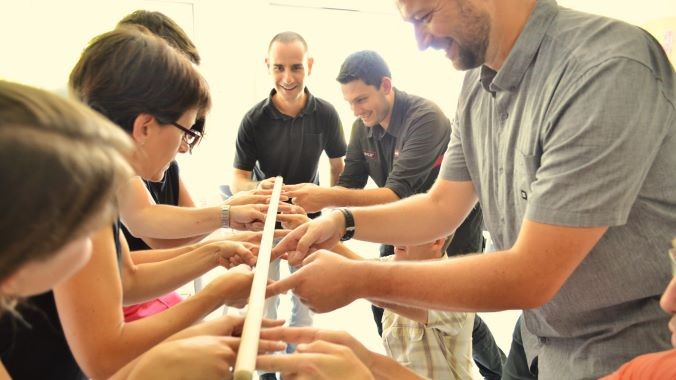
Lisode is a training organization certified by Qualiopi, under the category “Training Actions,” with certification number FRCM21311. Our training programs are accessible to people with disabilities.
- General information, funding and registration: Julie Beaumont, , 09 84 49 40 96
- Educational and disability contact: Elsa Leteurtre,
2600 |
participants trained since 2011 |
20 |
training sessions organized each year (in-house and external) |
100% |
of our training sessions are conducted in person. |
Our next training sessions
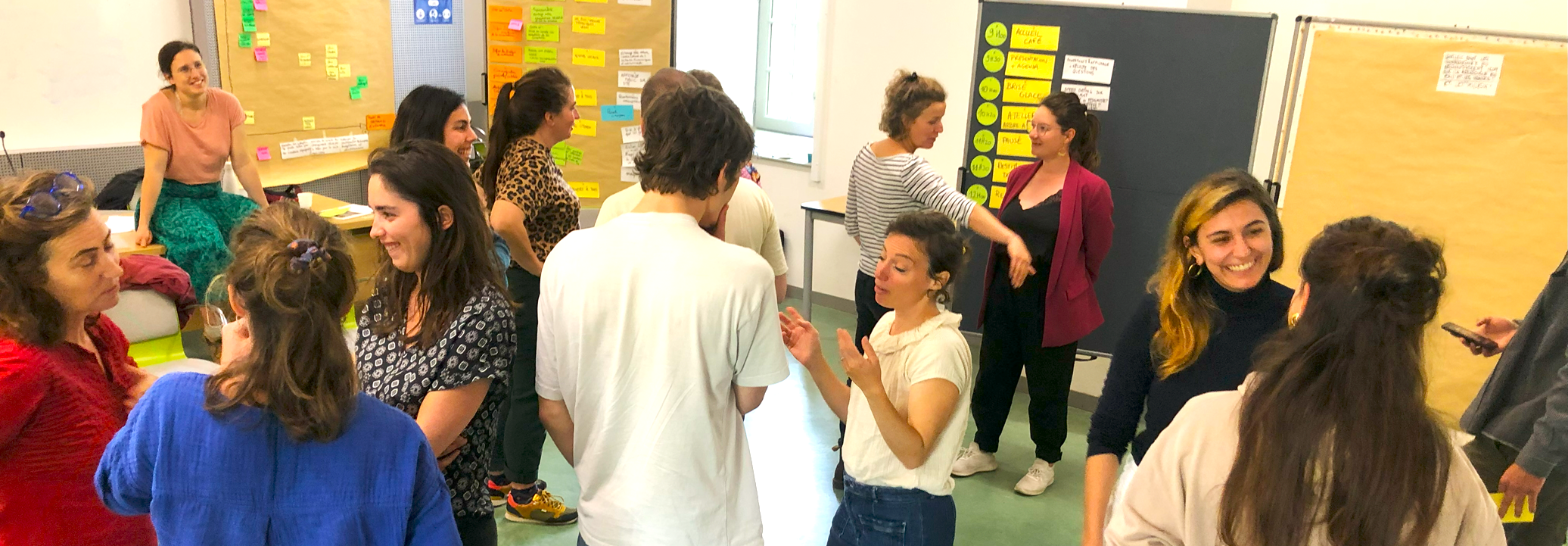
DESIGNING AND FACILITATING
PUBLIC PARTICIPATION PROCESSES
Public participation requires time and skills! Whether it involves engaging different types of institutional actors or building bridges between institutions and citizens, the challenges are numerous, and mistakes can be costly.
This training offers you a framework to better understand these practices, as well as tools and methods to implement them in your region.
By the end of this training, you will be ready to plan, lead, and facilitate your own participatory process.
- Next session : 20, 21 and 22 of May 2026
- Location: Maison des Sciences de l’Homme de Montpellier, 71 Rue du Professeur Henri Serre, 34090 Montpellier
- Practical information: Julie Beaumont, , 09 84 49 40 96
- Information on the training content: Mathieu Dionnet
- Training brochure: here
- Detailed Program: available upon request by email
- Satisfaction Indicator: Since 2021, 98% of participants (76) consider that the training met their expectations.
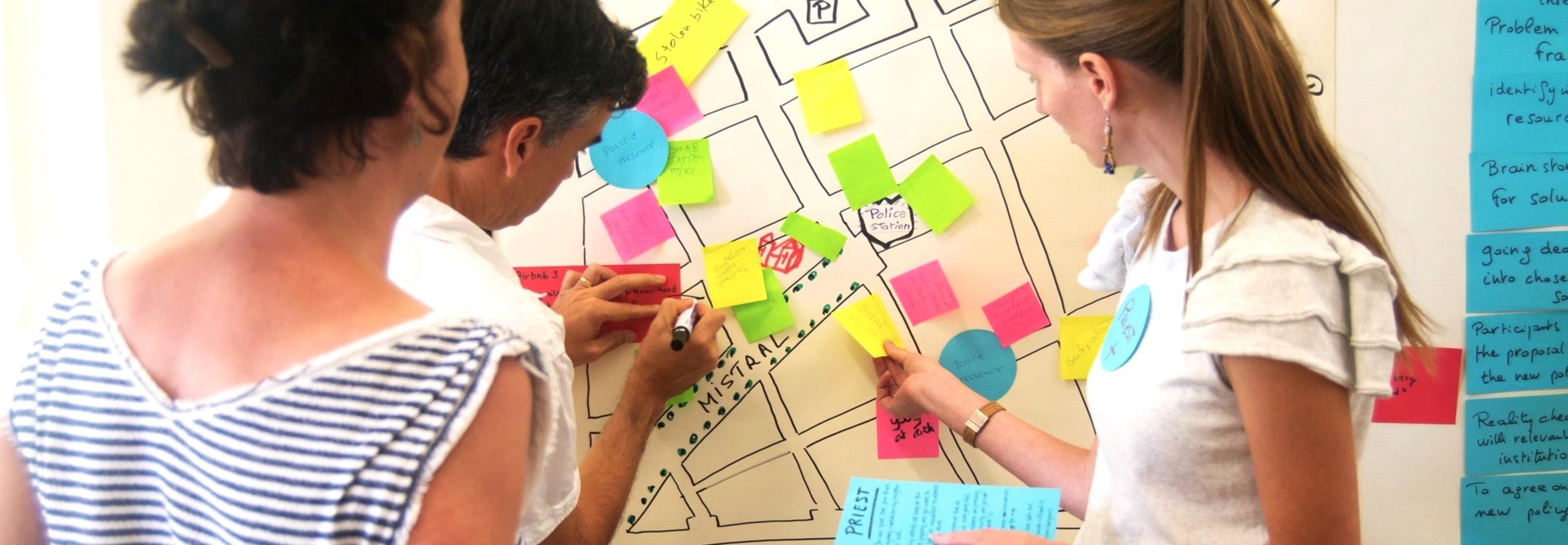
PARTICIPATORY RESEARCH:
PRINCIPLES AND METHODS TO CO-CREATE KNOWLEDGE
AND COLLABORATE WITH SOCIETY
This training provides the theoretical and practical foundations necessary for the participation of stakeholders and citizens in research projects. It is based on participatory engineering and utilizes an analytical and reflective framework that offers trainees the opportunity to question and enhance their practices and stance.
At the end of the training, participants will be able to design a participatory research process tailored to a given context, select appropriate tools and methods, facilitate group interactions to strengthen collective intelligence, and evaluate their approach. Additionally, they will be equipped to position themselves regarding the epistemic challenges posed by these approaches.
- NEXT session : 2026
- Location: Maison des Sciences de l’Homme de Montpellier, 71 Rue du Professeur Henri Serre, 34090 Montpellier, France
- Pratical information: Julie Beaumont, , 09 84 49 40 96
- Information on the training content: Mathieu Dionnet
- Training brochure: available upon request by email
- Detailed Program: available upon request by email
- Satisfaction Indicator:
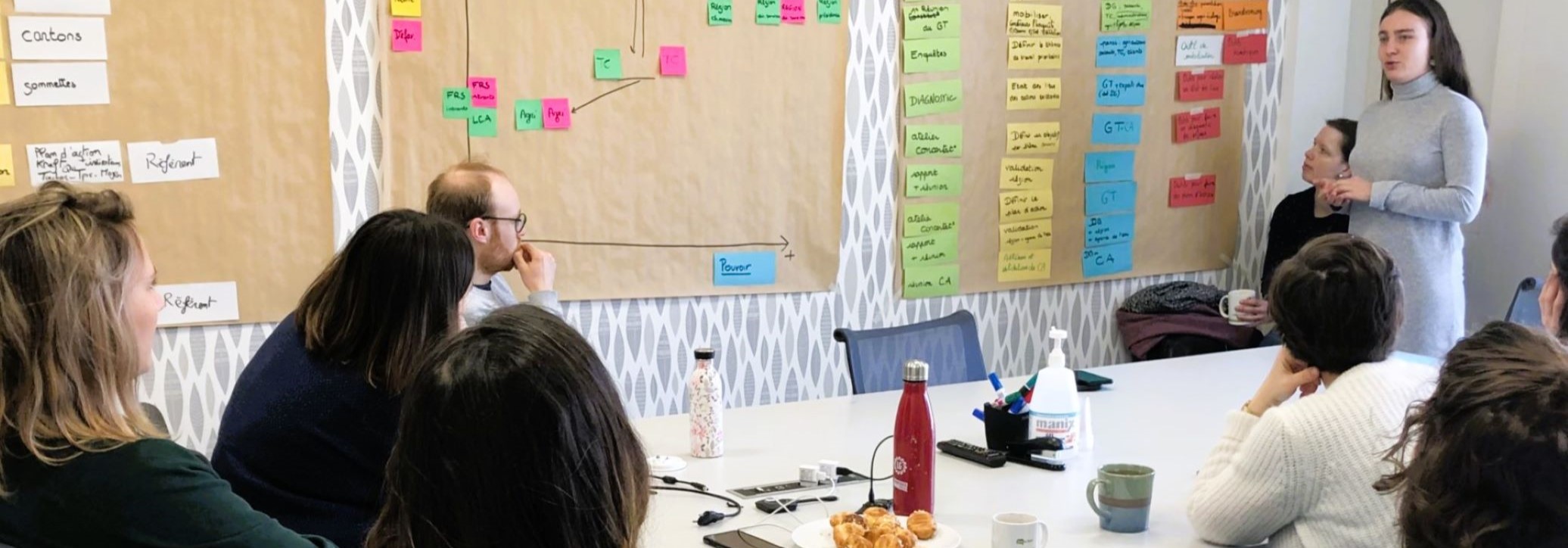
GROUP FACILITATION
TO SUPPORT COLLECTIVE INTELLIGENCE
A public organization or a research center is not a monolithic entity. It consists of different teams or departments, each working from its own perspective and priorities.
The challenge for these organizations is to leverage, rather than suffer from, the diversity of viewpoints and expertise, and to build bridges both internally and externally with stakeholders.
By the end of this training, you will be able to co-create projects that integrate multiple disciplines and/or areas of expertise, both within and outside your organization.
- Next session : no session planned yet
- Location: Maison des Sciences de l’Homme de Montpellier, 71 Rue du Professeur Henri Serre, 34090 Montpellier
- Practical Information: Julie Beaumont, , 09 84 49 40 96
- Information on the training content: Amar Imache
- Training brochure: here
- Detailed Program: available upon request by email
- Satisfaction Indicator: In 2023, 100% of participants (9) consider that the training met their expectations.
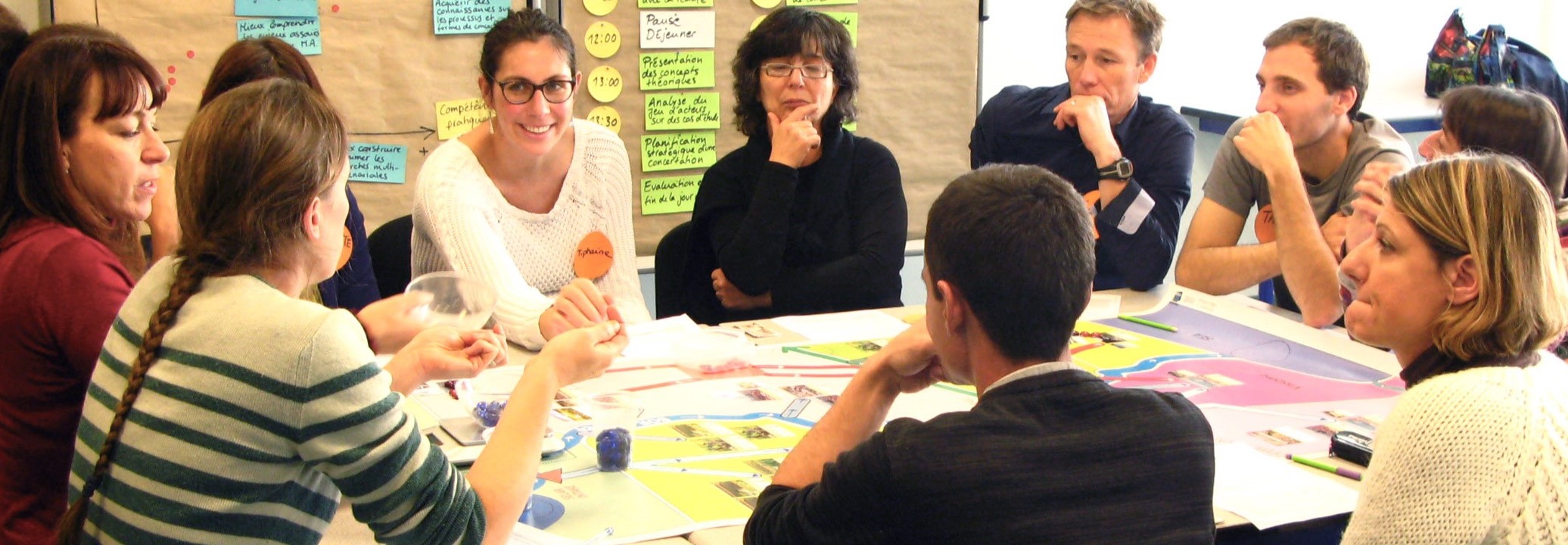
DEVELOPING A COMPANION MODELING APPROACH
RESEARCH SCHOOL
The management of natural resources is a key challenge for the coming century(ies). This issue encompasses economic, social, environmental dimensions and is sometimes linked to public health concerns.
Participatory modeling is an approach that allows for collectively addressing these issues in all their complexity. Indeed, the complexity and technical nature of certain problems are often seen as barriers to open discussion. As a result, these issues may be depoliticized and left in the hands of “experts.”
It is common to represent a resource management system through a model. Traditionally, this model is developed solely by researchers using a classical scientific approach. The ComMod approach stands out because it enables the co-creation of a model, drawing on both researchers’ knowledge and local, indigenous knowledge, and it communicates this model through a board game. The game, as a dynamic model based on a shared representation, thus becomes a powerful tool for facilitating debate.
- Next session: 29 September – 2 of October 2025
- Location: Mas de la Plume 45 minutes from Montpellier (weekly accommodation in a gîte)
- Practical Information: Julie Beaumont, , 09 84 49 40 96
- Information on the training concent: Elsa Leteurtre
- Training brochure: here
- Detailed Program: available upon request by email
- Satisfaction Indicator: Since 2021, 90% of participants (61) consider that the training met their expectations.
